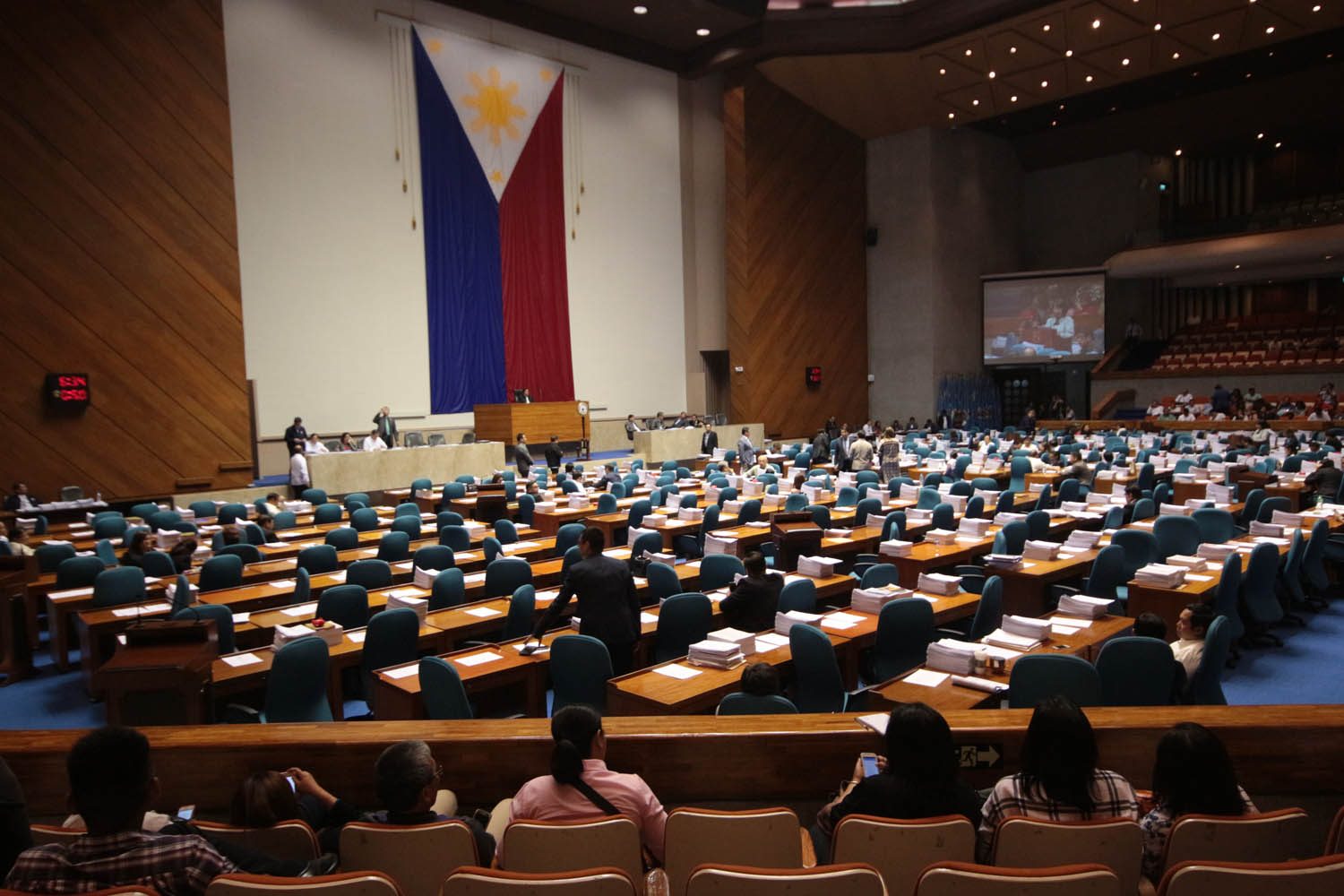SUMMARY
This is AI generated summarization, which may have errors. For context, always refer to the full article.

MANILA, Philippines – The House of Representatives on Friday, September 8, approved on 3rd and final reading a bill that creates a “single, unified, and streamlined” national identification system.
In a statement after its passage, Magdalo Representative Gary Alejano, one of its principal authors, said the bill would “streamline the process of public and private transactions and would result to more ease and convenience. This system will be an important tool in upgrading the speed and quality of public services without compromising the protection and privacy of personal information.”
Of those present at the plenary session, 142 legislators voted in favor of House Bill Number 6221 while 7 voted “no.”
The Makbayan bloc, a coalition of 7 legislators representing progressive organizations, opposed the bill.
In a statement, ACT Teachers Representative Antonio Tinio said he voted against the measure because it infringed on every Filipino’s right to privacy and other civil liberties.
“If House Bill 6221 becomes law, the intrusion of the state in the private lives of every Filipino citizen will be unprecedented, because of the reach of information that the state will collect and compile into a national database,” Tonio said, explaining his vote.
If it is passed into law, the FilSys or the Filipino Identification System would collect a person’s common reference number and basic information. It would also collect and store a person’s biometrics, voter’s ID, Philippine passport number, TIN number, PhilHealth number, PRC number, driver’s license, among others.
Among the agencies that will implemen the FilSys are the:
- Department of Information and Communication Technology
- Department of Foreign Affairs
- Department of the Interior and Local Government
- Department of Labor and Employment
- Philippine Statistics Authority
- Government Service Insurance System
- Social Security System
- Commission on Elections
- PhilHealth
- PAG-IBIG Fund
- Bureau of Internal Revenue
- Local Transportation Office
“Isasabatas ng bill na ito ang isang makapangyarihang aparato ng tinatawag ng police state sa ngalan diumano ng pagpapadulas ng mga serbisyo ng gubyerno,” added Tinio. (This bill legislates the instrument of being a police state supposedly in the name of fasttracking government services.)
Authoritarian measure?
Anakpawis Representative Ariel Casilao, a member of the Makabayan bloc, also opposed the bill, saying it was a “Marcosian or authoritarian measure,” referring to the late dictator Ferdinand Marcos, who imposed martial law over the Philippines.
Casilao said the measure is made more dangerous given President Rodrigo Duterte’s “recent publicized flirting” with the Marcos ill-gotten wealth, Mindanao martial law, the war on drugs, military operations against farmers and indigenous peoples, impeachment raps against the Chief Justice.
“The proposal is clearly under the framework of authoritarian rule and threat to the democratic aspirations of the Filipino people,” said Casilao.
Alejano, a former soldier, happens to be among Duterte’s critics in the House.
Casilao did not buy the argument that it would streamline government services, pointing out that services, to be begin with, are lacking or non-existent for the country’s most marginalized sectors.
ACT Teachers Representative France Castro said a national ID system is not the solution to improving government sercices.
“Paramihin mo ang kawani at suwelduhan nang tama at bigyan ng seguridad sa trabaho. Linisin ang mga korap at tadtad sa red tape na institusyon at siguruhing napapanagot ang mga dapat managot,” she said.
(Increase the number of employees, give them the right salaries, and give them security of tenure. Cleanse institutions filled with corrupt people and red tape, and make sure people are held accountable.)
In opposing the measure, Gabriela Representative Arlene Brosas recalled a data breach of the Commission on Election (Comelec) in 2016. (READ: Experts fear identity theft, scams due to Comelec leak)
Tinio, citing the argument of the bill’s sponsors and authors, said the measure would make the national ID mandatory in order for citizens to avail of services in different government agencies.
“To summarize, ‘no ID, no entry’ will become a national rule in the country. That’s not right,” said Tinio.
Alejano said he hopes the bill’s counterpart measure will pass Senate scrutiny as well. – Rappler.com
Add a comment
How does this make you feel?
There are no comments yet. Add your comment to start the conversation.